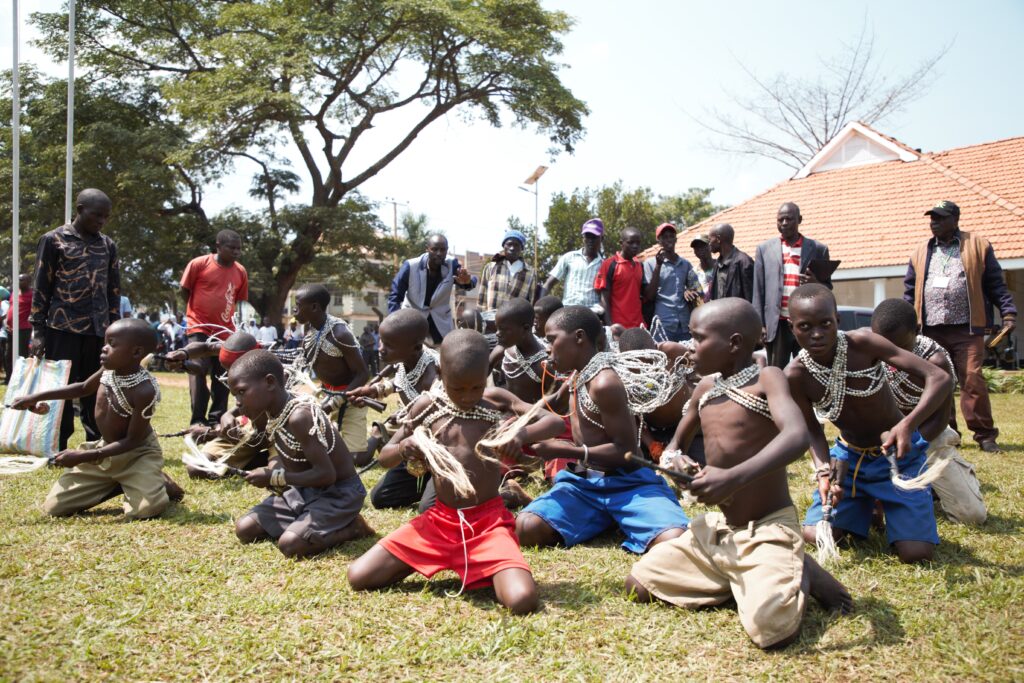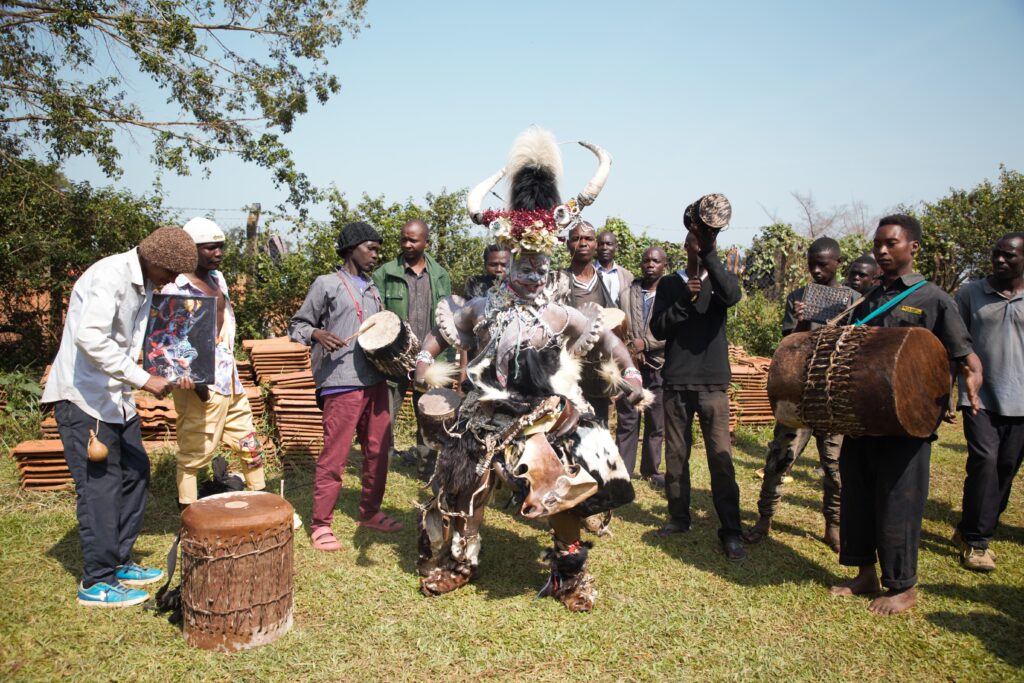By Andrew Bugembe
Among the Gishu people of Eastern Uganda, the path to manhood is neither for the faint-hearted nor the unprepared. This year, as young men gathered in anticipation of the day that will define the rest of their lives, amidst the grass-thatched houses, I was there to witness the event as I had gone to document the happenings.
This day is special in this community and is marked by an ancient ritual of circumcision. It is a moment of pride and pain, but as they say, an ultimate transformation. The circumcision ceremony, known locally as Imbalu, is for the Gishu not just a physical transformation. It is a spiritual journey as well.
Before the knife touches their skin, the young men say they must answer the whispers of the gods and dance to the loud beats of the kadodi drums, which sends their adrenaline soaring.
Bare-chested and muscular, I watched the young men stand with a tense determination. The physical and mental preparation required for this rite of passage in their eyes was evident.
Some were tall and bearded, others still growing into their manhood, but all shared the same resolve to face the sharp knife that would seal their fate as men.
The atmosphere was electric, filled with the rhythmic beats of the kadodi drums, thick with the odour of sweat and the sound of praises sung to the gods who they said had granted them the strength to see this day.
The young men, with their hands raised to the sky, meditated on the significance of what was about to happen. They knew that the knife would soon peel away a part of them, but in doing so, it would carve out their place among the men of their community.
I watched the young men being brave as the knife cut and blood splashed. They stood firm with their eyes focused upward, refusing to flinch. To them, this pain was a necessary step toward manhood, and until they faced it, they would not rest. Emanuel Wangusa echoed this feeling: “I only felt that I was circumcised after feeling the pain of that knife,” he said.
Ivan Tsebeni, a news reporter and a circumcised Gishu, explained that some young men are so eager to prove their courage that they take matters into their own hands. “Some of them cut themselves, and those are the ones we truly consider brave,” he said.
Moses Wazama, a 22-year-old from Namisindwa District, was so eager to go through the ritual and kept showing his determination. “I am more than ready to be circumcised,” he declared, his voice full of anticipation. As he jumped high into the air, the metallic bells tied around his legs jingled. “I don’t want to shame my mother and father. I am ready to become a man,” he said, showing how deep the desire for these young men is to please their family and relatives and gain acceptance in the community.
Even in death, I learnt, the Gishu ensure that every man faces the knife. “Even if you die uncircumcised, they will circumcise you before burial,” Enock Bwayo, a local elder and chairman of the disabled community told us, highlighting the deep-rooted belief that one cannot rest peacefully without undergoing this rite.

The Imbalu ceremony is held every two years and is considered one of Uganda’s most significant cultural festivals. It draws crowds from across the country who come not only to witness the bravery of the Gishu men but also to partake in the celebrations.
For a number of the Gishu, circumcision is more than a tradition; they believe it is a safeguard against diseases like gonorrhoea and HIV. “My father told me that a circumcised man cannot easily contract HIV,” Charles Masaba said, echoing a belief held by many in the community.
Circumcision is also seen as a way to honour the ancestors, particularly Mwambu and Masaba, the forefathers of the Gishu legend. “This act is historical, and it makes our ancestors happy when we circumcise,” Bwayo said.
While the community cites many reasons as to why circumcision is done, at the end of the day, the strongest reason is that they believe manhood is only confirmed after one has faced the knife. “You can only be a man after you have faced the knife, without this rite then you are not a man,” asserts Enock Wanderema, a communication specialist at the UNDP Pulse Lab Uganda.
However, not everyone is comfortable with the spiritual aspects of the ritual. Some Christians, like Rongo, a village elder from Namisindwa, expressed concern about the calling of ancestral spirits during the ceremony. “I don’t like it when they call upon the spirits. The boys often look very weak and sometimes fall sick afterward,” he said.


